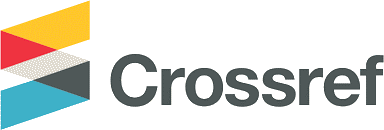Journal of Materials Exploration and Findings
Abstract
The oil and gas industry is one of the world's largest and most influential energy contributors. All aspects involved in the operation of this industry are fundamental to be reviewed and managed correctly, especially by preventing or minimizing the failures that could occur. Uniform corrosion is the most common component failure mechanism that can cause failure in the oil and gas industry. The company's actions in managing and preventing the risk of this type of failure have a major role in the sustainability of the company due to the possibility of more significant impacts if the risk cannot be handled well, such as high inspection and handling costs, environmental impacts, and threats to work safety. In this study, the Dynamic Risk-Based Inspection (DRBI) method, which is a development of Risk-Based Inspection (RBI), is implemented to handle and analyze risks that are managed in real-time at each inspection period. Risk level analysis was carried out through data processing related to pipe thickness from the risk profile from the inspection results in 5 months using Igor and Rstudio software and calculating corrosion rates using the forward difference approach. Based on the analysis results, five risk levels of pipeline failure at PT. X due to uniform corrosion using DRBI was obtained, consisting of two medium risks and three medium-high risks. In contrast, only one risk level was obtained from the RBI method, namely medium-high. The risk value fluctuates greatly every month, causing the DRBI method to have a higher level of accuracy and the ability to detect potential risks in more detail than the RBI method.
References
- Askari, M., Aliofkhazraei, M. and Afroukhteh, S., 2019. A comprehensive review on internal corrosion and cracking of oil and gas pipelines. Journal of Natural Gas Science and Engineering, 71, p.102971.
- Restrepo-Diaz, H., Benlloch, M. and Fernández-Escobar, R., 2008. Plant water stress and K+ starvation reduce absorption of foliar applied K+ by olive leaves. Scientia Horticulturae, 116(4), pp.409-413.
- Kermani, M.B. and Harrop, D., 1996. The impact of corrosion on the oil and gas industry. SPE Production & Facilities, 11(03), pp.186-190.
- Wahyuningsih, U., Rusdji, H. and Sulystiyo, E., 2017. Penanggulangan korosi pada pipa gas dengan metode cathodic protection (anoda korban) PT PGN solution area tangerang. Jurnal Power Plant, 5, pp.40-50.
- Hartoyo, F., Fatriansyah, J.F., Mas' ud, I.A., Digita, F.R., Ovelia, H. and Asral, D.R., 2022. The optimization of failure risk estimation on the uniform corrosion rate with a non-linear function. Journal of Materials Exploration and Findings (JMEF), 1(1), pp.1-9.
- Hartoyo, F., Irianti, G.P., Fatriansyah, J.F., Ovelia, H., Mas' ud, I.A., Digita, F.R., Fauzi, A. and Anis, M., 2023. Weibull distribution optimization for piping risk calculation due to uniform corrosion using Monte Carlo method. Materials Today: Proceedings, 80, pp.1650-1655.
- Rachman, A. and Ratnayake, R.C., 2019. Machine learning approach for risk-based inspection screening assessment. Reliability Engineering & System Safety, 185, pp.518-532.
- Tien, S.W., Hwang, W.T. and Tsai, C.H., 2007. Study of a risk-based piping inspection guideline system. ISA transactions, 46(1), pp.119-126.
- Ossai, C.I., 2012. Advances in asset management techniques: An overview of corrosion mechanisms and mitigation strategies for oil and gas pipelines. International Scholarly Research Notices, 2012, pp.1-10.
- Langley, P. and Simon, H.A., 1995. Applications of machine learning and rule induction. Communications of the ACM, 38(11), pp.54-64.
- Alviansyah, M., Hartoyo, F., Nurullia, Z.N. and Kurniawan, A., 2022. Dynamic RBI with Central Difference Method Approach in Calculation of Uniform Corrosion Rate: A Casestudy on Gas Pipelines. Journal of Materials Exploration and Findings (JMEF), 1(2), p.5.
- Bhatia, K., Khan, F., Patel, H. and Abbassi, R., 2019. Dynamic risk-based inspection methodology. Journal of Loss Prevention in the Process Industries, 62, p.103974.
- American Petroleum Institute, 2008. API 581 Risk Based Inspection Technology, Downstream Segment-2nd Edition.
Recommended Citation
Fatriansyah, Jaka Fajar; Nurullia, Zahra Nadia; Federico, Andreas; and Priadi, Dedi
(2023)
"Development of Dynamic Risk-Based Inspection Using Forward Difference Approach for Pipe Failure Due to Uniform Corrosion,"
Journal of Materials Exploration and Findings: Vol. 2:
Iss.
1, Article 5.
DOI: 10.7454/jmef.v2i1.1002
Available at:
https://scholarhub.ui.ac.id/jmef/vol2/iss1/5
Included in
Metallurgy Commons, Other Engineering Commons, Other Materials Science and Engineering Commons, Risk Analysis Commons










